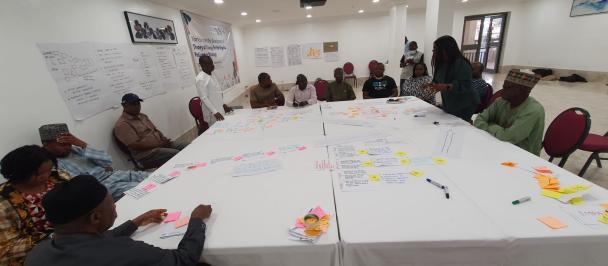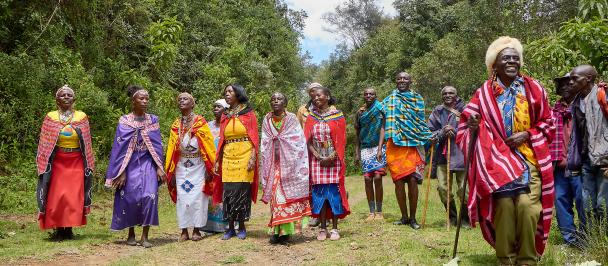Photo: Kenya Television Network (KTN) News
In the run up to the World Day to Combat Desertification and Drought on 17 June, Anne Juepner, the Director of the UNDP Global Policy Centre on Resilient Ecosystems and Desertification (GC-RED) joined other government and development partner experts in a televised panel discussion on the Kenya Television Network on 12 June 2020. In line with the theme of the 2020 Desertification and Drought Day of “Food. Feed. Fibre - the links between consumption and land”, the discussion focused on the sustainable production and consumption in Kenya in the face of the growing impact of desertification, land degradation and recurring drought.
Today, more than 2 billion hectares of previously productive land have been degraded worldwide to produce food, (animal) feed and fibre. Almost a quarter of greenhouse gas emissions comes from agriculture, forestry and other land use. Yet, one-third of all food produced each year is lost or wasted, while close to 1 billion people are undernourished. This loss or waste is equivalent to a land footprint of 1.4 billion hectares, close to 30% of the world’s agricultural land area.
“We believe that a reversal of current trends of land degradation is indeed possible. We now have an improved understanding of the kinds of actions that can reverse a great deal of the damage done,” said Juepner.
“But most importantly, simple changes in our everyday lives will ensure that we have enough land to meet our growing demand for food, feed and fibre. The choices we make when buying food or clothing have long-term consequences on the sustainability of our land resources. Everyone can make a difference. Cutting food waste, buying from local markets, or even keeping your clothing in use for longer can all help to free up land for other uses and lower carbon emissions,” she added.
UNDP has been a strong advocate of the United Nations Convention to Combat Desertification (UNCCD) since its adoption in 1994. With the coming into force of the Convention in 1996, UNDP assisted over 70 developing countries to prepare their National Action Programmes to Combat Desertification. Moreover, UNDP supported major capacity building and policy advocacy initiatives led by the Convention, including the Land Degradation Neutrality Target Setting Programme, the Global Land Outlook and the UNCCD Gender Action Plan.
Drawing on decades of experience, UNDP assists countries to integrate desertification, land degradation and drought concerns into national and sectoral development frameworks. UNDP also supports countries to secure financial resources and implement programmes that advance inclusive, sustainable growth and development with a diverse set of channels, including the Global Environment Facility (GEF), the Green Climate Fund (GCF) and other bilateral donor and private sector funding.

 Locations
Locations


